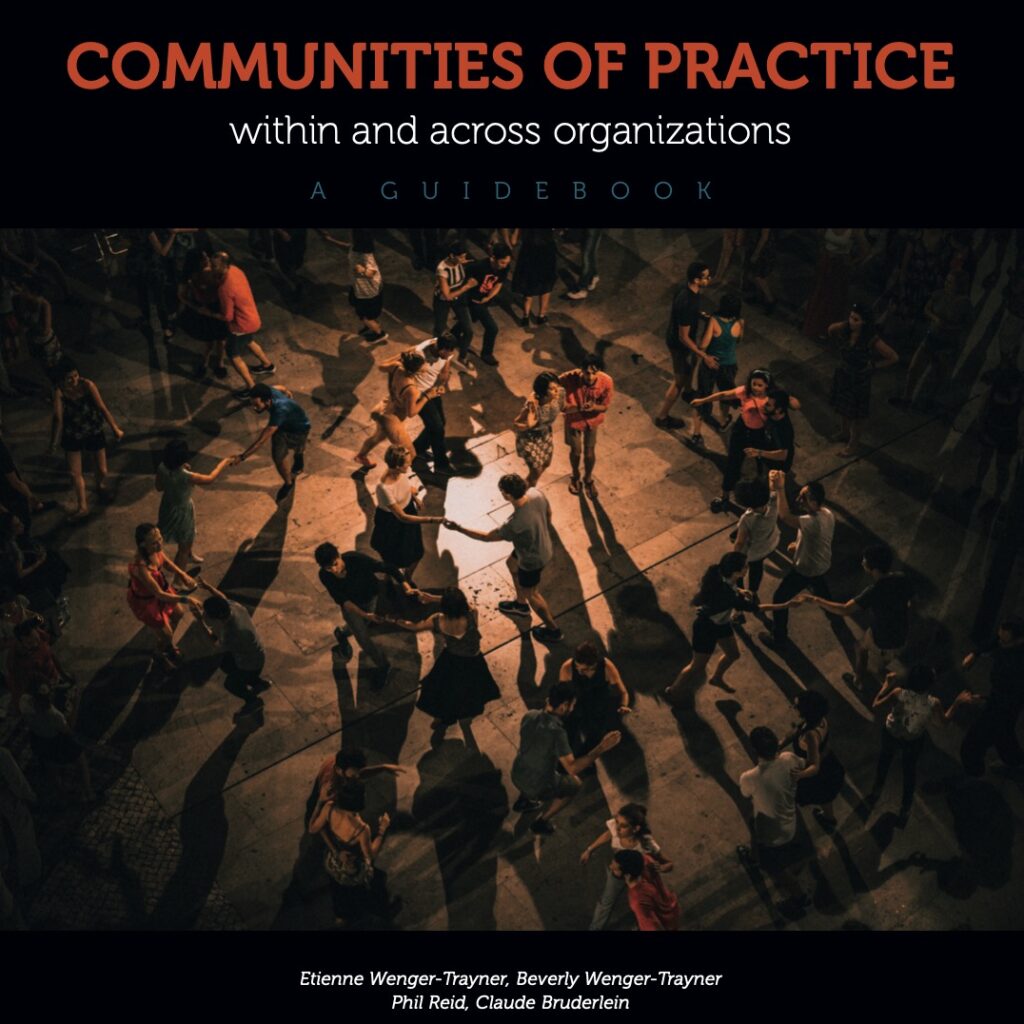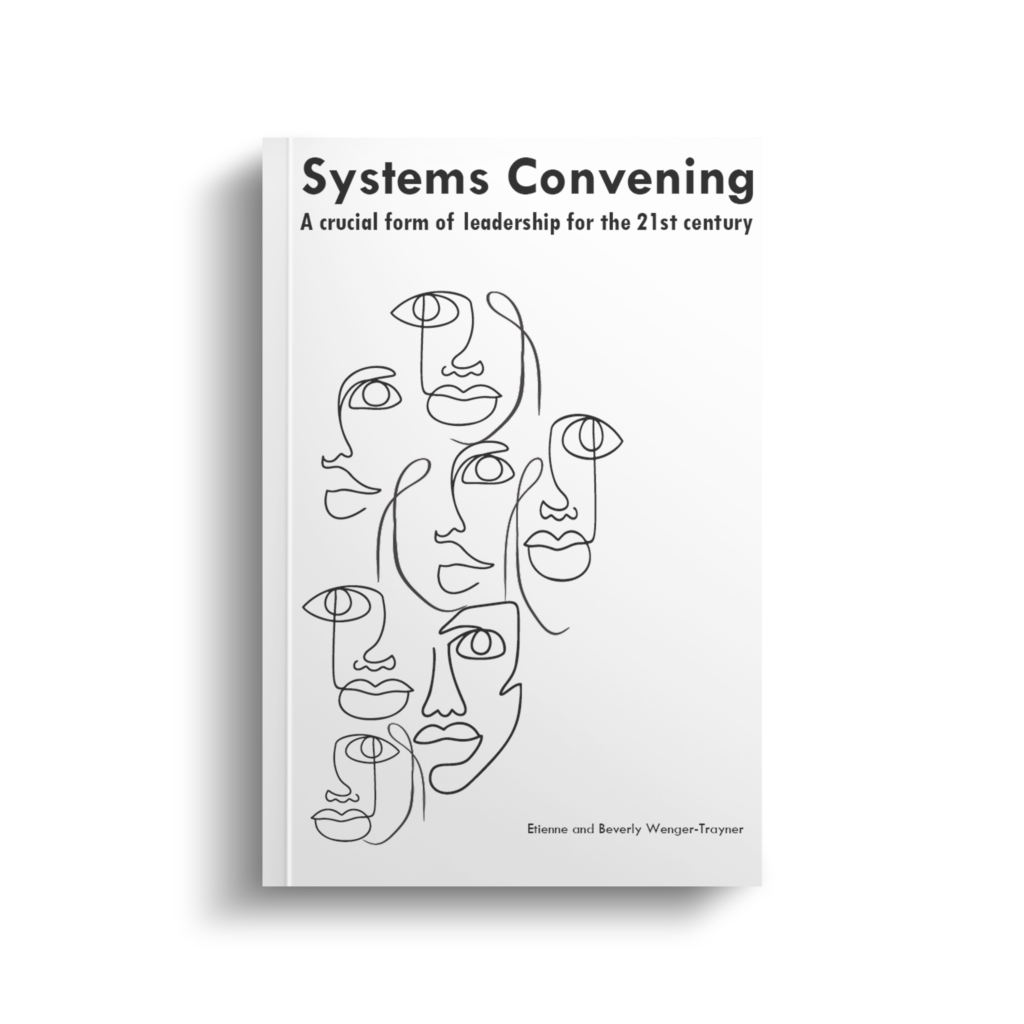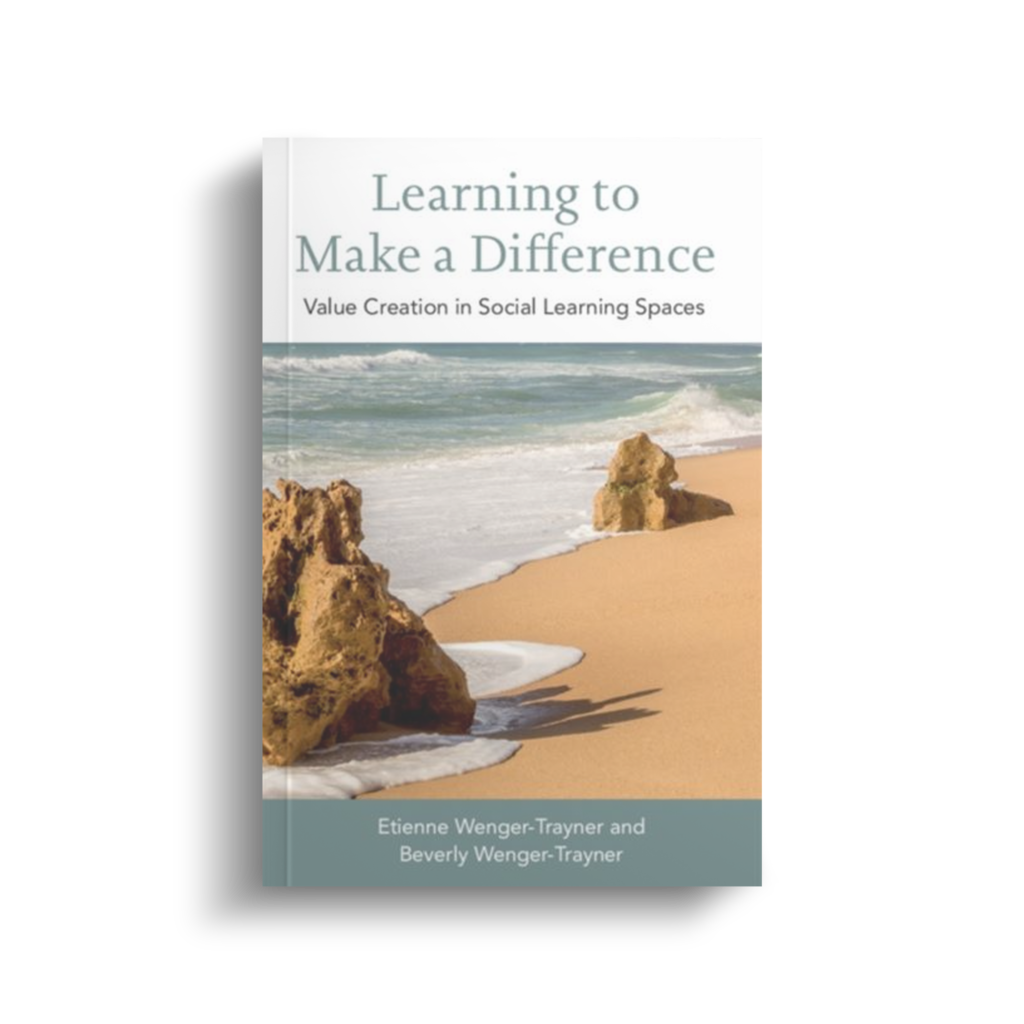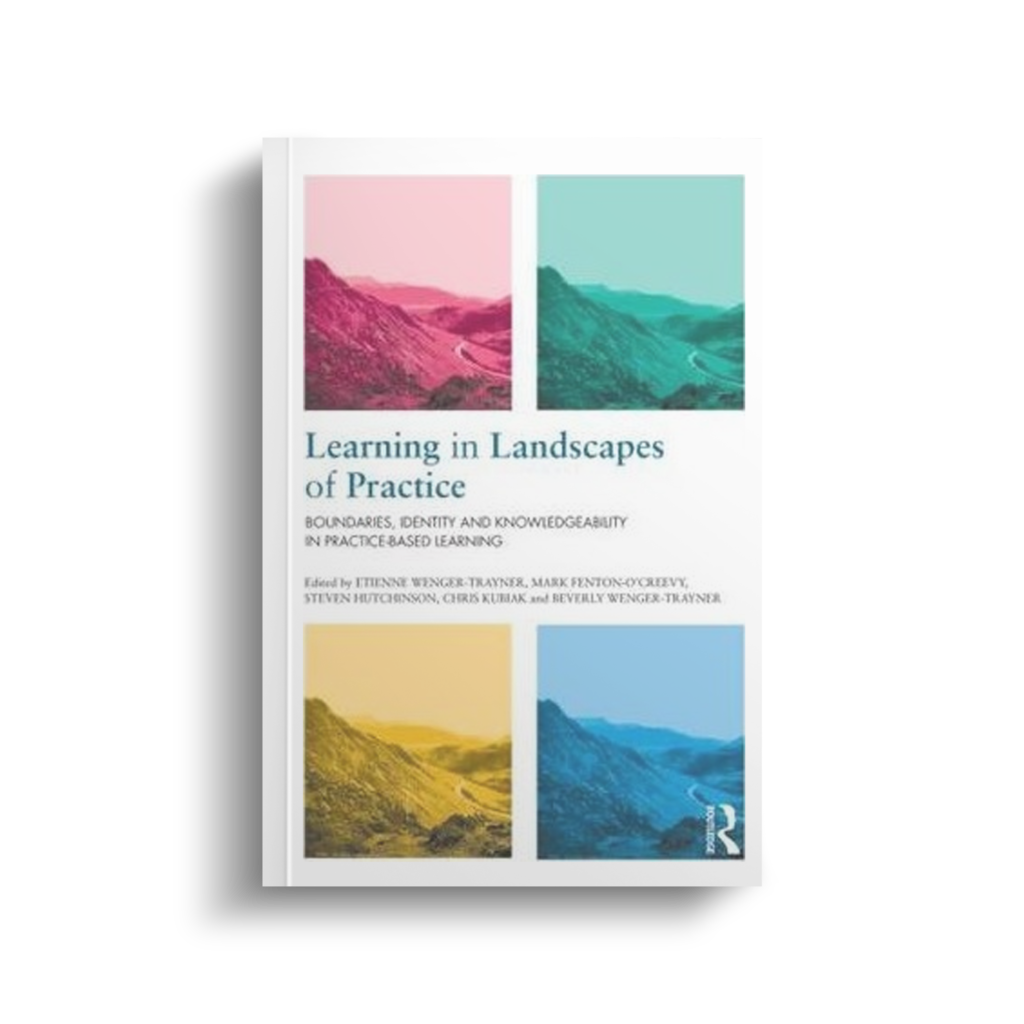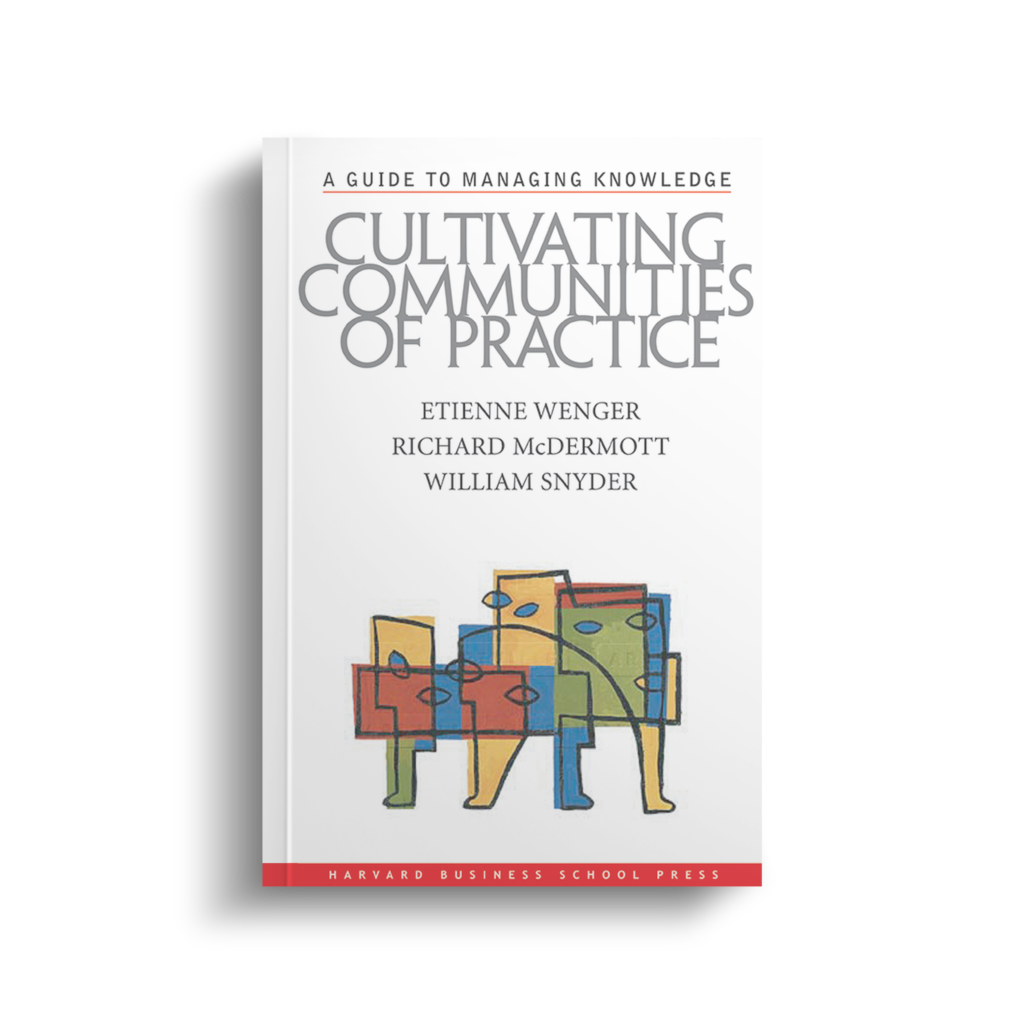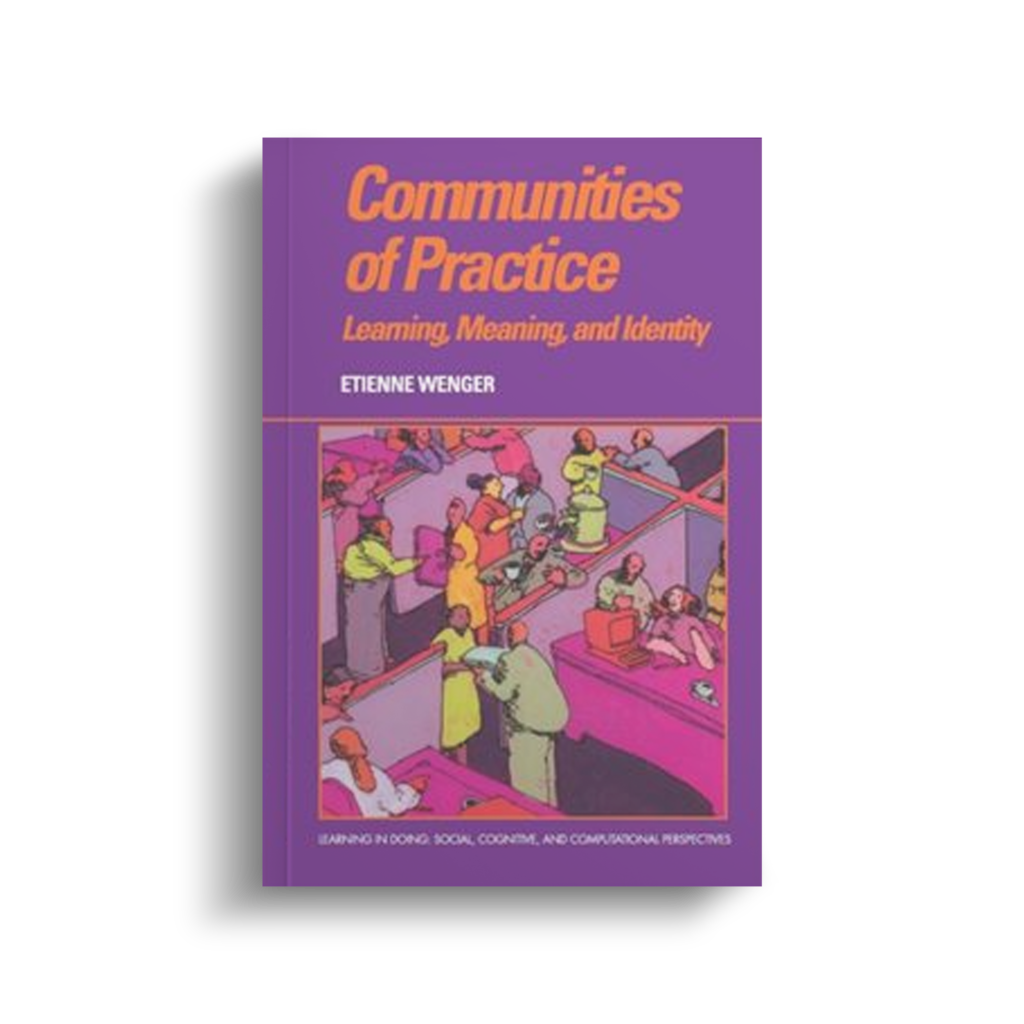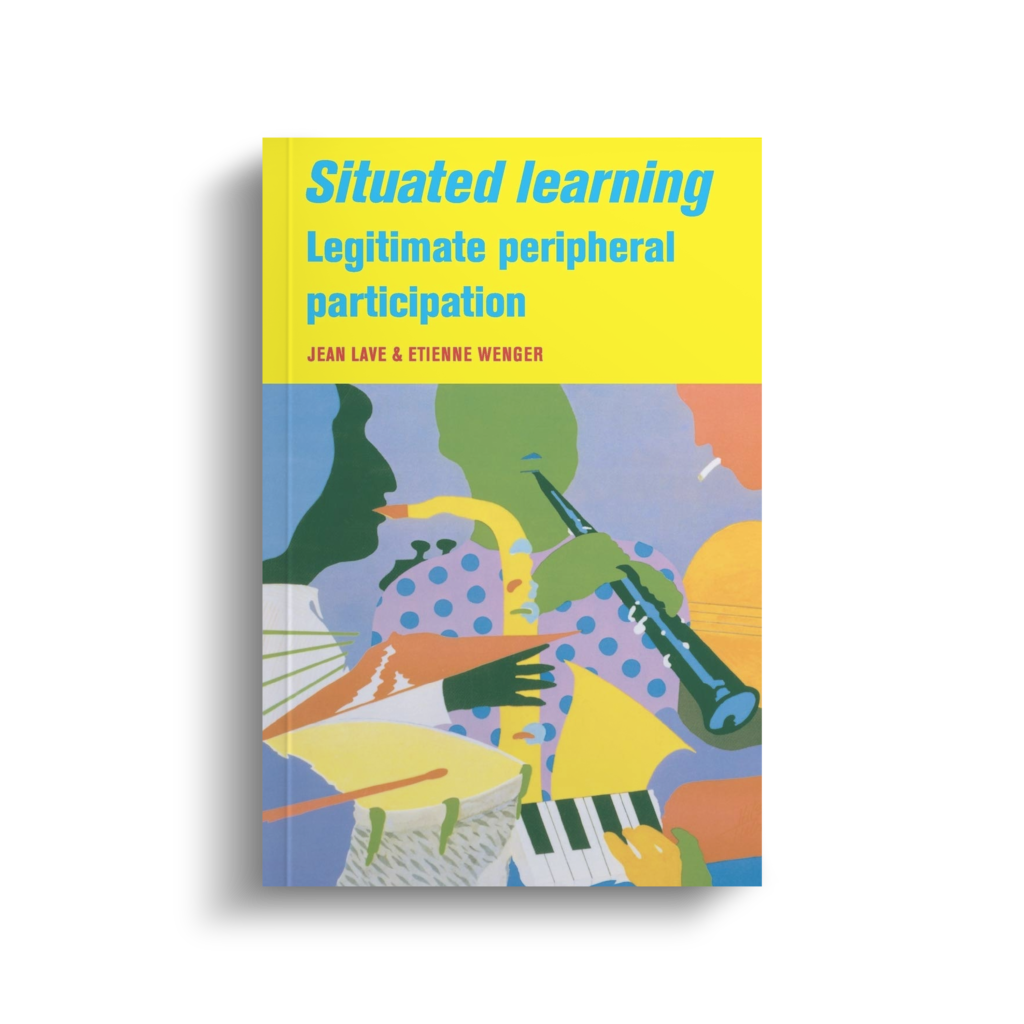Books
most recent first
Communities of practice
within and across organizations
— a guidebook
Etienne Wenger-Trayner, Beverly Wenger-Trayner,
Phil Reid, Claude Bruderlein
This new guidebook captures the practical experience of the authors with communities of practice. It includes chapters on setting the organizational context, cultivating communities of practice, facilitating meetings and social learning activities, using technology, and articulating the value created.
Social Learning Lab, 2023
Leo Botary
Timely and timeless
I just finished reading it. I loved the content and the construct. Real-world examples are supported by a time-tested academic foundation. Whether someone is new to communities of practice or has deep experience leading or being part of them, there is value in this narrative for everyone.
Founder and CEO Peernovation
Systems convening
a crucial form of leadership for the 21st century
Etienne Wenger-Trayner and Beverly Wenger-Trayner,
This short book showcases systems convening work in different contexts around the world. It describes the role and practice of people who enable learning across boundaries and connect people across silos. Their work often goes unnoticed, but they have a vital role to play in addressing 21st-century challenges.
Social Learning Lab, 2021
Benjamin Taylor
Deep insights into crucial work
A powerful study in social learning which names something which really seems to exist – people deeply embedded in context and committed to making change happen across levels and boundaries. This piece draws on case studies and present context to enable learning without prescription, while drawing out potential commonalities and themes under the new banner.
Red Quadrant and The Public Service Transformation Academy, U.K.
Learning to make a difference:
value creation in social learning spaces
Etienne Wenger-Trayner and Beverly Wenger-Trayner
This book offers a framework for learning to have an impact: engaging with others, monitoring the value this creates, and making adjustments on-the-go. It is written for researchers, educators, and leaders in business, government, healthcare, and international development with or without prior knowledge of learning theory.
Cambridge University Press, 2020
Michael Fung-Kee-Fung
Another tour de force
Another tour de force by the authors, marking the expansion of their seminal work in communities of practice. This work provides for a broader impact through the development of practical concepts in social learning. It is a must-read for all of us who are seeking to liberate the potential of organizations and teams.
Medical Director of the Regional Cancer Program and Professor of Obstetrics, Gynecology, and Surgery, University of Ottawa, Canada
Designing for change:
Etienne Wenger-Trayner and Beverly Wenger-Trayner
This book was commissioned by the University Innovation Fellows Program to tell their story using our value-creation framework. The Fellows are university students from campuses around the world. The program coaches them to use their entrepreneurial spirit and skills to drive changes on their campus that are designed to promote innovation and entrepreneurialism. The stories of these students captured in this book are amazing.
Learning 4 a small Planet, 2019
Tomas Kalil
Affecting change
The culture we built in our teams to affect change is consistent with the social learning theory that Beverly and Etienne Wenger-Trayner describe in this book. During our time at OSTP, we discovered the University Innovation Fellows program. … Like us, the University Innovation Fellows believed that the status quo is changeable. They were public servants, working for the greater good of their schools, learning together as a large community of practice and in smaller teams on their individual campus. And above all, they believe in getting things done.
Former Deputy Director, White House Office of Science and Technology Policy
Learning in landscapes of practice
boundaries, identity, and knowledgeability in practice-based learning
Etienne Wenger-Trayner, Mark Fenton O’Creevy, Steven Hutchinson, Chris Kubiak, and Beverly Wenger-Trayner
This book expands the focus on learning capability from single communities of practice to the broader landscape in which there operate. The first part provides the theoretical framework. The second part tells stories of people learning across boundaries. The third part introduces “systems convening” with case studies of projects that attempt to facilitate learning across boundaries.
Routledge, 2014
Digital habitats
stewarding technology for communities
Etienne Wenger, Nancy White, and John Smith
This practical book explores the increasing interweaving of communities and technology. It presents a framework for anchoring a technology configuration in the learning needs of a community. It introduces the role of technology stewards who can bridge between the life of a community and the constantly evolving potential of technology.
Learning 4 a small Planet, 2009
Shawn Callahan
Role of tech steward
Digital Habitats has a single goal: to help the reader understand the role of technology steward in cultivating a community of practice: what is it, why you would do it, are you are cut out for it, how to do it and where to find help.
Founder of Anecdote, methods designer, and story specialist
Cultivating communities of practice
a guide to managing knowledge
Etienne Wenger, Richard McDermott, and William Snyder
This practical book is targeted to leaders in organization who want to cultivate communities of practice as a way to manage knowledge. It explains why communities of practice are a key to managing knowledge. And it provides practical advice on the art of cultivating communities and on creating an organizational context to support communities.
Havard Business School Press, 2002
Martin Roulleaux Dugage
Essential reading
This book is an essential reading for any leader in today’s knowledge economy. It will undoubtedly remain as a reference for all of us practitioners who want to develop communities of practice for the benefit and long-term success of organizations and their employees.
VP Innovation & Expertise Services, Areva
Communities of practice
learning, meaning, and identity
Etienne Wenger
This conceptual book lays out a social theory of learning centred on the concept of communities of practice. Based an ethnographic study, it presents a broad framework for thinking about learning and knowing in social terms, exploring such concepts as meaning, boundaries, trajectories, generations, identity, identification, power, and many others.
Cambridge University Press, 1998
Stuart MacAlpine
Brilliant
Brilliant. A study of the way that learning or simply living is embedded in a complex web of meaning making in which we balance our participation with the things or reifications that represent the order, ideas, institutions or things we work with. It is enormously useful in thinking about every aspect of learning and community. An absolutely essential read. Powerful.
Initiative Lead – Playful Schools Initiative at The LEGO Foundation, Director Hesscairn Learning Design
Situated learning
legitimate peripheral participation
Jean Lave and Etienne Wenger
In this short conceptual book, anthropologist Jean Lave and I first introduced the concept of community of practice. Starting with an analysis five case studies of traditional apprenticeship systems, we observed how in each case a whole community served as a living curriculum for the newcomer. We called these communities “communities of practice.”
Cambridge University Press, 1991
Dr. Peter
Could change your practice
I bought this book so long ago and recently purchased a Kindle version. It is a book I re-read every other year to remind me of what I think is important. I teach in a very small multi-level classroom in a small rural school and the industrial production line model of teaching simply is not applicable to us. More a craft shop I use the situated learning model in my classroom. I am at the centre and I am the master, and the students spiral in towards me as they master the knowledge they need to be good students. Starting on the periphery students work alongside peers and more advanced learners. I learnt how to do this it from this book.

